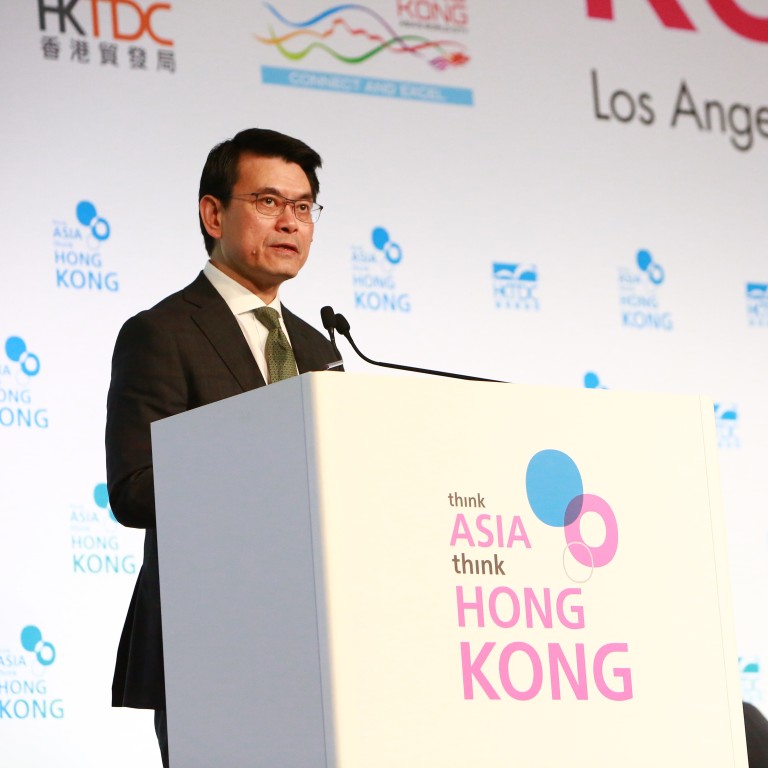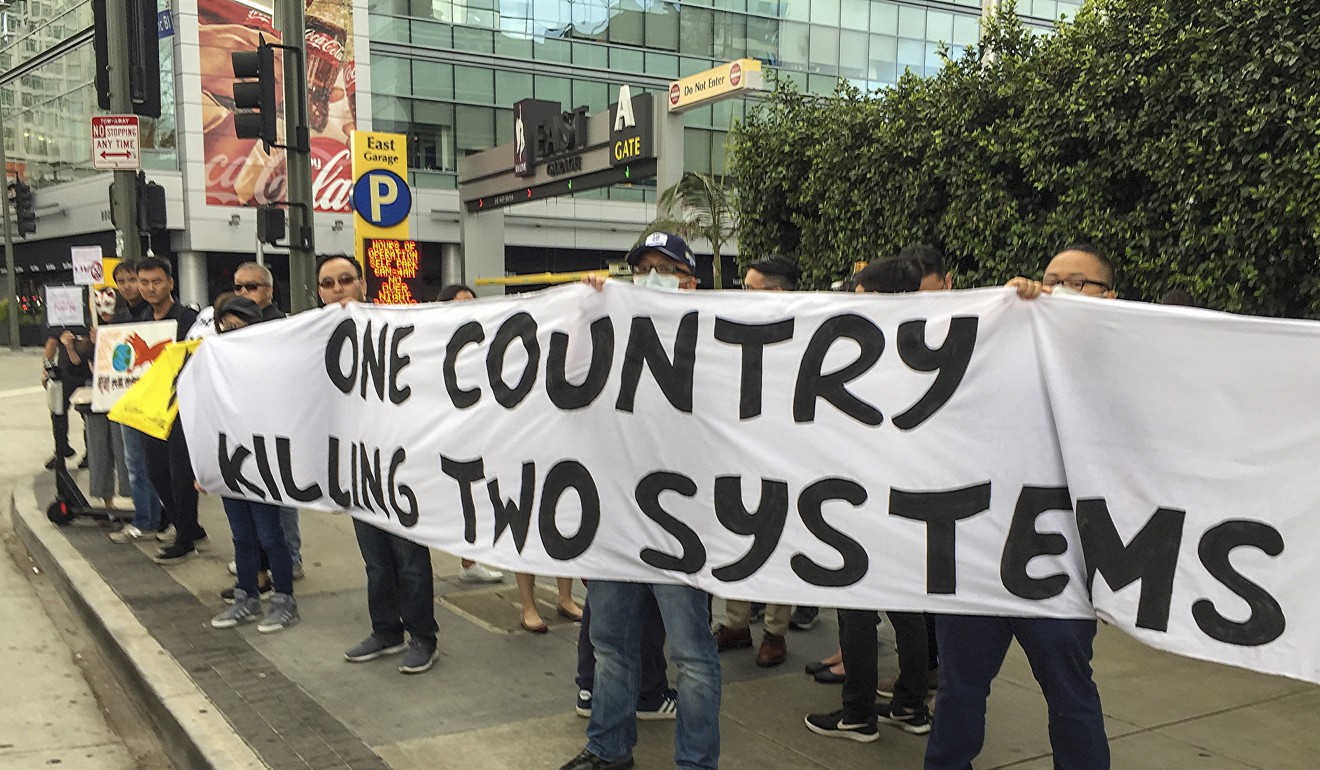
Hong Kong commerce chief Edward Yau says American investors unshaken by protest crisis – and US human rights bill may not hurt economy
- Edward Yau says many US companies ‘understand Hong Kong’s situation’ and are undeterred about operating in the city
- Yau is doubtful Washington will impose new measures on Hong Kong
American companies are still eager to invest in Hong Kong and are unlikely to be put off by a bill that could pave the way for diplomatic action and economic sanctions against the city’s government, commerce chief Edward Yau Tang-wah has said.
The bill, if passed, would require the US government to assess the level of human rights and democracy in the city each year to determine whether Washington would continue to grant trade privileges under the 1992 Hong Kong Policy Act.
He said many American companies “understand Hong Kong’s situation” and were still interested in exploring opportunities in the city.

“But the view of Congress could be different from [Americans] in many states. I understand that from a political viewpoint it is natural for the US to be more concerned about issues such as human rights and freedom,” Yau said.
“But is it doing reasonable things that suit our bilateral interests? This is up to Americans to decide.”
Yau said the effects of the bill would depend on whether the US government adopted new measures for Hong Kong. He was doubtful Washington would impose new measures on Hong Kong.
“The bill requires an annual report to be submitted [to Washington]. But this was being done already,” he said. “Politics and trade should be separate. We would not design our trade policy to serve a larger trading partner – that would go against Hong Kong’s [principles].”
Before the event started, a group of about 10 Hong Kong emigrants protested outside the venue, calling for Americans to stand with the city in the fight for democracy.

Asked by Hong Kong reporters if it was the right time to promote the city when it was in turmoil, Yau said the government must multitask and handle social, economic and political issues at the same time.
“Unless someone wanted Hong Kong to stop running, as a government, the socio-economic situation and the city’s external affairs are what we must work on each day. Maybe we need to do even more work these days,” he said
He said when the Hong Kong trade council organised a similar symposium in Los Angeles in 2013, only 1,500 people signed up – compared to 2,500 this time.
Yau said these numbers indicated a growing business interest in Hong Kong and mainland China.
Yau and the city’s technology chief have been visiting North America. For the next few weeks, four other officials are expected to travel to Europe, Australia and South Korea to promote Hong Kong and attend international conferences.

